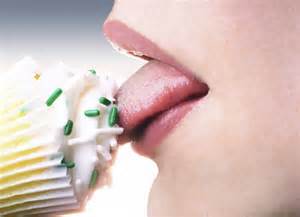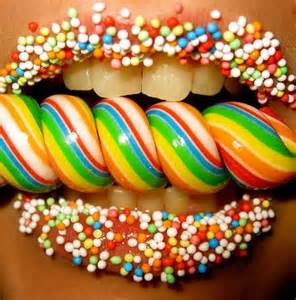I hope you’re still thirsty for more information, and water.
In this final segment of our first healthy habit, I’d like to take a look at the impact that “sweetness” is having on your weight-loss initiative and overall health & wellness. From real sugar to artificial sweeteners.
The point is not to pick on anyone with a sweet tooth or sugar addiction. But the concept from last week of adding a little flavor to your water so you can drink more inspired this post.
I’d also like to look at the “sugar-free” craze that’s been promoted and popularized for too many years. And the side effects of relying on them in your nutrition plan. You know, those colorful little packets that include brands like Splenda, Equal, Nutrasweet, Stevia, and Sweet ‘N Low.
But before we go any further, let’s start by understanding a little more about sugar, which is also referred to as “added” sugar. The American Heart Association sets daily intake guidelines by the teaspoon and total calories. Up to 6 teaspoons per day for women, or about 90 calories. And up to 9 teaspoons for men, or about 135 calories.
Consider this, a teaspoon or an equivalent sugar packet contains about 4 grams and 15 calories. I know it doesn’t seem like much. But those 15 calories are truly “empty” with ZERO nutritional value. And they add up quickly.
I want you to think about what this means when the nutrition label on that 20 ounce bottle of Pepsi you reach for indicates zero fat. But if you read further, you’ll see 69 grams of sugar and 250 calories. This equates to 17 packets of sugar! Are you freakin’ kidding me?
According to the American Heart Association, the average American consumes about 21 teaspoons per day from added sugars. Equivalent to about 330 calories. That’s more than triple the recommended daily limit for women, and more than double the recommended daily limit for men.
And although naturally occurring sugars such as those found in fruit and milk contribute to your overall sugar intake, they don’t qualify as “added” sugars. In addition to the most common white table sugar, added sugars also include, brown sugar, honey, corn syrup, fructose and dextrose.
However, sugar is not just limited to desserts, candy bars and soda. It sneaks into our diet in some “not-so-obvious” places. Like cereals, salad dressings, “healthy” sports bars and drinks, low-fat “healthy” yogurt, and most cold cuts, just to name a few. So read your nutrition labels.
Okay, let’s move on to artificial sweeteners, also known as low-calorie sweeteners or sugar substitutes. It’s obvious that they are intended to add sweetness without the calories. At first glance, the sugar substitutes appear to be a good thing. You’re not consuming all that unhealthy sugar. And they help you lose weight by eliminating the extra calories. Sounds harmless, right?
Well think again…
Although they provide taste to your food and beverages similar to table sugar, they are sometimes referred to as “intense” sweeteners because they are hundreds to thousands of times sweeter. And therein lies one of the problems. Because artificial sweeteners are so “potent”, some studies have shown that you actually train your body to crave more sugar.
And with beverages like diet soda, you could be priming your brain to want to eat more because you’re not getting the fullness of the sugar-sweetened version. One study showed that diet soda drinkers had a 70% increase in waste circumference than non-diet soda drinkers. Other studies have shown associations between artificially sweetened drinks and obesity.
So let’s cut to the chase.
Added sugar has NO nutritional value. And our bodies don’t need sugar. There’s plenty of data, both in favor of, and against the use of artificial sweeteners. Want my suggestion? Make a commitment to STOP using sugar altogether, as soon as possible. Real or artificial, it’s not helping you.
I realize that it may not be easy to quit. And that you’re going to have to sacrifice a little. But your health is well worth the sacrifice and you’ll be much better off not being so sweet.
Here are a few articles that may help:
- 5 Tips to Help You Kick Sugar in a Week http://www.huffingtonpost.com/wellness-today/diet-and-nutrition_b_5411759.html
- Added Sugars (from the American Heart Association) http://www.heart.org/HEARTORG/HealthyLiving/HealthyEating/Nutrition/Added-Sugars_UCM_305858_Article.jsp#.VqQK95NWK3Y
- Why We’re Saying ‘No Thanks’ To Diet Soda http://www.huffingtonpost.com/2013/07/24/diet-soda-health-risks_n_3606906.html
Next week we introduce our 2nd healthy habit. I’ll give you a sneak preview – it’s about exercise. But don’t sweat it yet. We’ll start slow. In the meantime, keep reinforcing your water habit.
Thank you for sharing your time with me. I’d love for you to let me know what you think by leaving a comment. Is the content valuable and helpful? Did anything resonate? Will you take action? What else would you like to see in future posts?
If you know someone that can benefit from this content, I’d be eternally grateful if you would share this with them. And if you like what you see, you can SUBSCRIBE for automatic updates, LIKE US on Facebook, and spread the word about www.thin2win.net with your friends, family and social circles.



